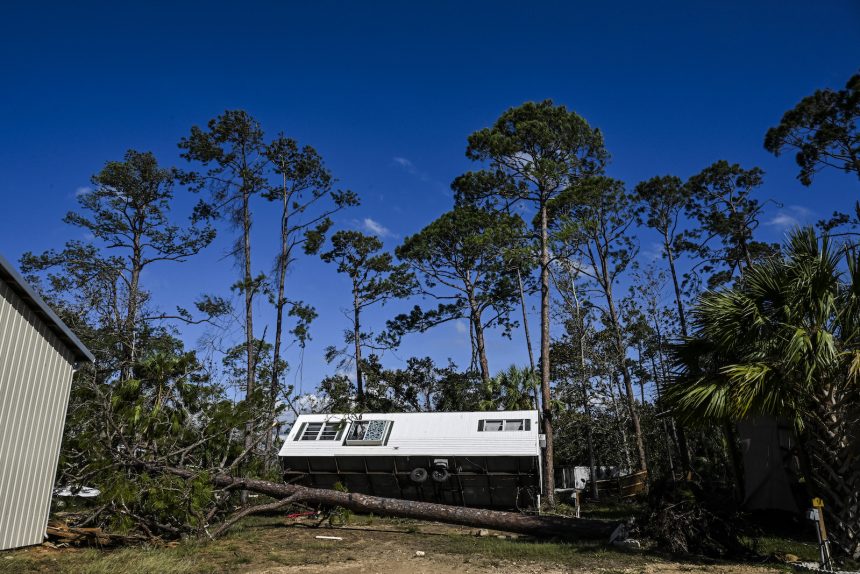Joe Vargas carefully secured a beach bag across his torso, holding onto his two small dogs, Peppe and Mama, as he opened his front door to confront the raging storm of Hurricane Helene on September 26. The powerful storm surge enveloped the 63-year-old in waist-deep water, with debris swirling around him as he waded through the torrent. Vargas recalled feeling a sense of impending doom, a fear of not surviving the onslaught of water and wind.
Living in Harbor Lights, a waterfront manufactured home community in St. Petersburg, Florida, Vargas had opted not to heed the mandatory evacuation order. The decision to stay behind was not only a financial strain and logistical challenge, but also a result of his confidence from surviving previous hurricanes. However, the unprecedented strength of Hurricane Helene proved to be a terrifying experience for Vargas, who sought shelter in a neighbor’s house once the storm hit.
As Hurricane Helene left a trail of destruction across multiple states, including catastrophic damage to properties and communities like St. Petersburg, the difficulties of evacuating before a storm became clear. For many, the costs, limitations, and logistical challenges of evacuating make it a daunting and sometimes impossible task. This predicament is especially prominent for vulnerable populations, such as the elderly, those with limited mobility, and low-income families.
The stories of Joe Vargas, Kelsey Sanchez, and others reveal the complexities and hardships faced during evacuation efforts in the face of powerful hurricanes like Milton. Financial burdens, lack of resources, and unforeseen obstacles can make the decision to evacuate a difficult one. The aftermath of hurricanes often exposes underlying issues of equity, transportation access, and disaster preparedness for vulnerable communities.
The experiences of those impacted by Hurricane Helene and Milton underscore the urgent need for improved disaster response, communication, and support for communities facing the ongoing threats of extreme weather events. As individuals like Vargas and Sanchez contemplate leaving their homes in hurricane-prone regions, the challenges of rebuilding, recovery, and resilience in the face of climate change remain at the forefront of disaster preparedness efforts.






